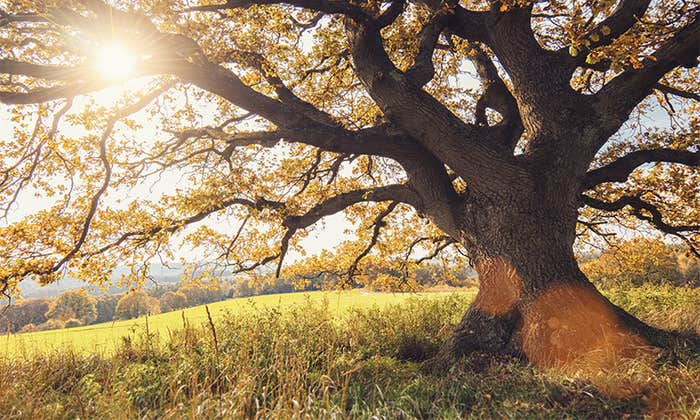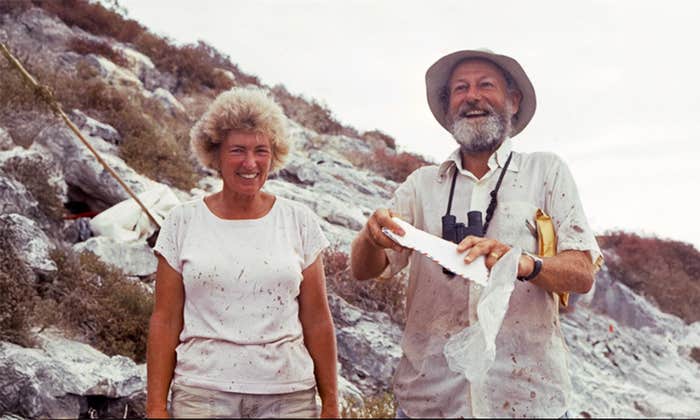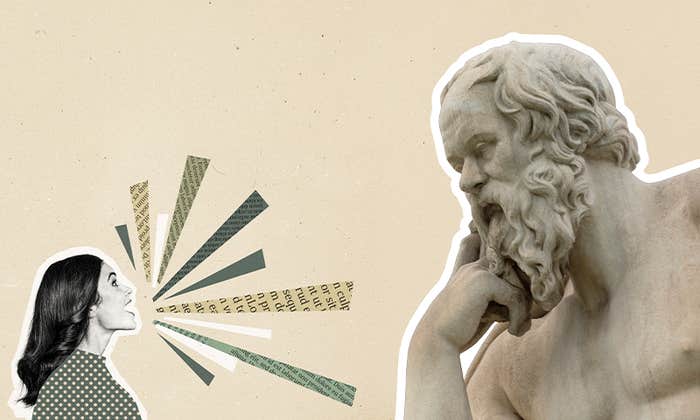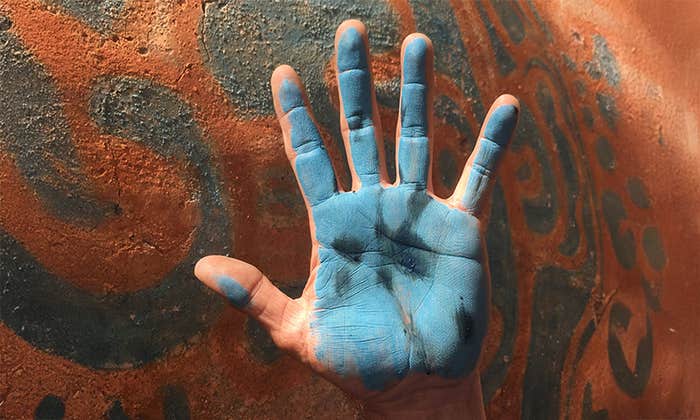This is the tale of two Sean Carrolls. Nautilus brought the two scientists together for the fun reason that they share a name. And their conversation is filled with humor and camaraderie. And brilliance. The Sean Carrolls bring their perspectives from physics and evolutionary biology to bear on timeless questions about the origin of life, the possibilities of life on other planets, the tension between science and religion, the fate of Earth, and how they first got enchanted by science as kids.
Sean Carroll, the evolutionary biologist, is the former vice president for science education at the Howard Hughes Medical Institute, where he championed research and the role of science as a human endeavor rich with drama and beauty. His books include A Series of Fortunate Events about the chance occurrences that shaped life on Earth and The Serengeti Rules, which traces the invisible rules that govern ecosystems. His writing is rich in personal narratives that uncover the mechanisms of biological order and collapse.
Sean Carroll, the physicist, is a distinguished theoretical physicist celebrated for his contributions to quantum mechanics, cosmology, and the philosophy of science. He holds the position of Homewood Professor of Natural Philosophy at Johns Hopkins University. His most recent books are part of a series, The Biggest Ideas in the Universe, in which he brings readers “up to speed with exactly what professional physicists are talking about, with an emphasis on established knowledge rather than speculation.” His other books include From Eternity to Here, which explores the concept of time; The Big Picture, discussing the origins of life and the universe; and Something Deeply Hidden, focusing on quantum mechanics.
As the two Sean Carrolls sat down together in a conference room at the Howard Hughes Medical Institute in Maryland, the first thing they had to talk about was mistaken identity.
Sean Carroll, physicist
It’s so good to talk to you in person. I’ll start with my little story. When I was in graduate school, still in that early stage of your scientific career—who knows where you’re going?—I was walking down Harvard Square by the magazines, and Time magazine was coming out with an issue with 40 scientists under 40 who are going to change the world. And jokingly I said to myself, “Oh, I bet I’m in there.” So I pick it up and I’m in there! There’s my name. But I realized they made a terrible mistake. They had the wrong Sean Carroll. This guy was doing evolutionary biology, not cosmology at all. And that’s when I realized there was another Sean Carroll lurking out there in nature.
Sean Carroll, evolutionary biologist
And the confusion persists. The most common is when I’m giving a talk on a campus and the poster for the talk is illustrated with your books. People bring me your books to sign and I explain the confusion and they’re like, “Will you sign it anyway?” I say, “Maybe you can get both of us to sign it.”
Sean Carroll, physicist
The only one that hurt was when I was invited to a ritzy conference in the hills of Tuscany at a villa. I accepted and they said, “Actually, we don’t want you. We’re looking for the other one.”
Sean Carroll, evolutionary biologist
They didn’t find me, because I would have gone!
Sean Carroll, physicist
So, what happened to make you do biology? It’s so messy and hard.
Sean Carroll, evolutionary biologist
It’s funny. I had decent math ability as a kid. But my math ardor waned as I got into high school. That probably had something to do with how things were being taught. It just got less interesting, less fun. At the same time, friends in my neighborhood introduced me to flipping over logs and things like that, up by Lake Erie. Catching snakes and salamanders and frogs was something I did nearly every day. I thought “maybe I’ll be a herpetologist.” How did you stay on your path? How old were you when you knew you were interested?
I’m a super-duper atheist, but I don’t think we can figure out our purpose just from doing science.
Sean Carroll, physicist
I was 10. I was reading books about black holes and the Big Bang. I was never a go-out-there-and-touch-things-in-nature kind of guy. Even when I became interested in cosmology, my parents would get me a telescope or take me to the observatory and I’m like, “Why are we here? What is this? I can just read about this in a book.” It’s the simplicity and profoundness, the fact that the world that physics explains to us is so different than our expectations, and yet our minds can wrap around it a little bit. That’s what really got me excited.
Sean Carroll, evolutionary biologist
So, were you explaining things around the dinner table?
Sean Carroll, physicist
I was excited but I grew up in a resolutely non-excited family. No academic background, no bookshelves in our house. My parents were very supportive, but they had no idea what I was interested in or what I was doing, even in my science classes. I remember very vividly my high school teacher asking us all what we wanted to do, and I said I wanted to be a theoretical astrophysicist. He was so aghast that he wrote the words “theoretical astrophysicist” on the board, just to show everyone how weird that was. What was your background? Did you know you wanted to do this for a living?
Sean Carroll, evolutionary biologist
I had no clue. I’m sure you and I get asked this all the time, especially by younger people, “What’s the path?” You don’t really know what the path is. You just hope you’re lucky enough that a few mentors recognize that you’ve got the passion, and they’ll channel it, tell you where to steer it. That happened for me as an undergrad.
Sean Carroll, physicist
For me too. I’m continually impressed by how crucial it is to have some older person say, “You can do this.”
Sean Carroll, evolutionary biologist
So, my dad grew up on a farm, but he ended up being a scholar in Gregorian chant—the lucrative field of Gregorian chant. The example he set was that he followed his passion.
Sean Carroll, physicist
Were you religious in that sense? Or was it more about the songs?
Sean Carroll, evolutionary biologist
My dad was scholarly and knew a lot of languages. He read widely and his ideas didn’t conform to the party line, although he was a very observant Catholic. When the time came and I didn’t have those feelings and thoughts and sentiments, all he asked of me was that I would watch his choirs perform at Christmas. I said, “Dad, I’d be happy to come listen to the choirs at Christmas.” I was then released from my religious duties at age 12. I still appreciate that my dad was open-minded to say, “OK, if you think differently …”
Sean Carroll, physicist
It’s a complicated relationship between science and religion. I have good friends in cosmology and biology who are also deep believers. Do you think they’re fooling themselves? Do you think there is really a controversy there?
Sean Carroll, evolutionary biologist
The evolutionary biologists I know are predominantly nonbelievers. We like science as an explanation of things, and those other explanations that we may have grown up with don’t carry much power. My dad was pro-science, but he was also strongly a person of faith, so clearly those ideas can coexist in people and probably coexist in a significant fraction of people in the country or in the world. They accept the findings of science, but they have strong religious faith. If you’re talking about somebody who’s a pure creationist and doesn’t want to engage with science, that’s not interesting, and neither are scientists who say that science is all there is.
Sean Carroll, physicist
Religion was never meant to be just a statement about how the world works, but there are statements about how the world works in it. Those are the ones undermined by the success of science. But there are the other parts of religion, the social parts, the moral parts, the purpose of life, the meaning of things. Why do human beings exist? What is our purpose? Why are we even in this game to begin with? Maybe science can help us figure it out. But I would be on the side that says we have not yet figured it out. Do you see that as a challenge we haven’t yet risen to?
Sean Carroll, evolutionary biologist
I think you may be shocked by who I quote here, but I’d love to know what the pope says.
Sean Carroll, physicist
Let me hereby extend an invitation to the pope to come onto my podcast, Mindscape, or to come to Nautilus.
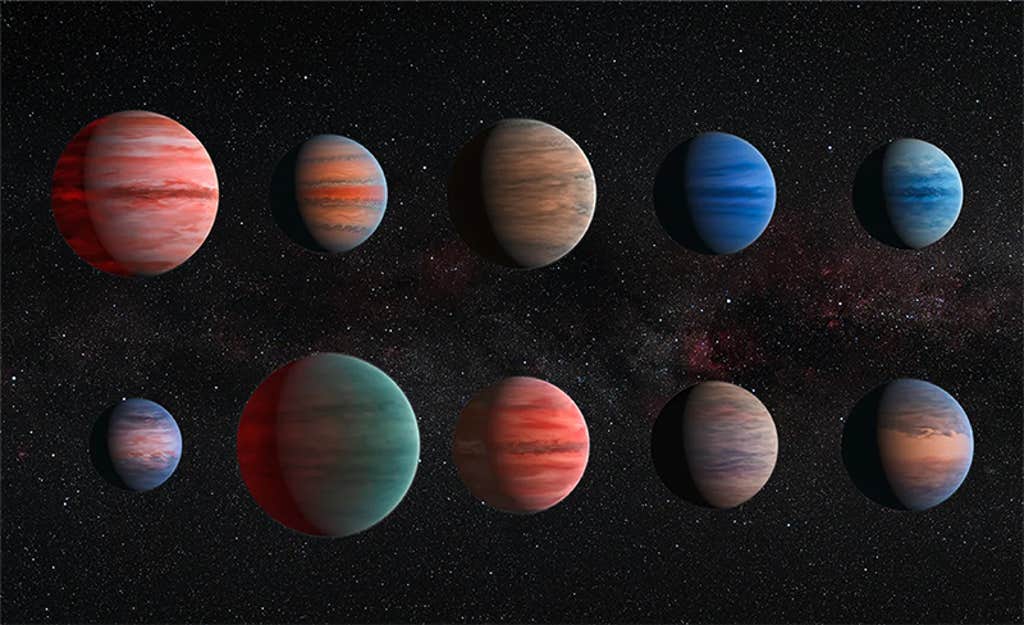
Sean Carroll, evolutionary biologist
The pope has said some powerful, eloquent things about why we’re here with respect to our common home, the planet. I think these are such welcome thoughts to a scientific community that’s so concerned about the dual crises of biodiversity loss and climate change. The pope is asking questions like, “What’s the meaning of our journey here on Earth if we’re going to leave it a shambles?” Getting into that realm of meaning and purpose and accepting that billions of people are influenced by faith, and influenced by faith leaders, is where the science world has to build bridges and say, “We have a common cause. The common cause is care for our common home.”
Sean Carroll, physicist
I’m as atheist as they come, super-duper atheist, but I don’t think we can derive “ought from is,” as David Hume taught us, or figure out our purpose just from doing science. In The Big Picture, I explained that, for thousands of years, the best human minds who cared about how we should live, and why we’re here, were doing so in the context of a religious tradition. It would be weird if they didn’t say anything interesting or important. I think a lot of scientists, especially the ones who are so enthusiastically atheist, don’t want to give any credit at all to that kind of thinking, and they probably exaggerate the extent to which religious people, as you say, also really believe all this stuff.
Sean Carroll, evolutionary biologist
I’m just as atheist as you. I don’t have a fiber of belief in my body. But on campuses, students want to engage with us. They don’t want to hear the most orthodox view from an evolutionary biologist or cosmologist and say, “This is it. That’s all there is. This is the law.” And they don’t want somebody in a collar to step up and say, “No, you’ve got to believe this as we put it down.” When kids start getting exposure to nuance, the richness of ideas, people with complex thoughts, then the windows open, and it’s a healthier journey from there.
Sean Carroll, physicist
One of the things I love about science is that it leads you to believe things whether you like it or not. At some point, you can’t escape. You’ve given a pitch, for example, for the importance of randomness and contingency in evolution and history.
Sean Carroll, evolutionary biologist
In my book A Series of Fortunate Events, I’m focused on the asteroid impact of 66 million years ago. It was the biggest rock to hit the Earth or the moon probably in the last half billion years, and where it hit mattered. If it hit most other places on Earth, it probably would not have triggered a mass extinction. When you think about that, you think, “Wow, but for one rock hitting the Earth 66 million years ago in a different place, humanity doesn’t exist.” So, I’m not a replay-the-tape sort of guy. I think there’s too many one-offs that easily could’ve gone another way.
Sean Carroll, physicist
If you do replay it from 5 billion years ago, where are the bottlenecks? Do you think the initial existence of life was difficult? Do you think that multicellular life was difficult?
Sean Carroll, evolutionary biologist
Oh, this is a fun one, yeah. My sense, and I think it’s shared by a pretty good part of the biological community, is that simple, unicellular, microbial life might be fairly prevalent in the universe. I’m of the view, just on the balance of evidence that, Yes, while life took a little while to get cooking, I don’t think it was that hard. With the dynamic geology and the chemistry of the Earth, and that whatever gave us water, collision of the comet, whatever, to put all the water here. You must know these theories.
Sean Carroll, physicist
I want to push back a little. That’s telling the story from a slightly parochial perspective. We know that Earth did it in the last 4 billion years of evolution. A lot of contingent events needed for it to happen that way. Are there completely different ways to get big animals with big brains?
Sean Carroll, evolutionary biologist
We have lots of life forms that persist, and there’s tremendous diversity among microbial life, so I don’t think any large stuff is going to be easy. If you gave me 100 planets with life, I would love that sample. I’m going to think large life like ours might be relatively scarce.
Sean Carroll, physicist
Well, I do know enough to say that there’s a lot of planets out there. Back when you and I were graduate students, we had the solar system. Now we have thousands of exoplanet systems. I’m not at all surprised. I think there was some kind of weird PR thing where people were acting surprised that we saw all these planets. I was just expecting most stars to have planets around them. Many of them seem to be perfectly habitable by the little information we have. It’s very plausible that life forms on some substantial fraction. Even if it’s 0.1 percent, that’s still an enormous number of planets that have life on them, and we have not been visited by any aliens.
One of the things I love about science is that it leads you to believe things whether you like it or not.
Just to be very clear, if there is an alien civilization that has technology to build spaceships that go at 0.1 percent the speed of light, they would have filled up the galaxy a long, long time ago. The galaxy’s big, but it’s also old, and it’s easy for any ambitious civilization to go everywhere, and they haven’t. The Fermi paradox, right? “Where are they? Why aren’t they talking to us?” What’s the answer to this?
Sean Carroll, evolutionary biologist
They probably have a weak Congress.
Sean Carroll, physicist
Gridlock, in a filibuster.
Sean Carroll, evolutionary biologist
[Laughs] You have the technology evolving in a culture, and then you have the politics. The technological capability is just outstripping the political ability to deal with it. That’s going to be my theory of why they don’t get here.
Sean Carroll, physicist
I think the simplest thing is that there’s lots of life in the universe, and it’s all monocellular, unicellular. We’re weird in that we’re not.
Sean Carroll, evolutionary biologist
Right. Visit the Earth anytime in the first 4 billion years or so and everything’s small. Everything’s essentially microbial. That was the state for the longest time. Animals and redwoods are weird. They’re the unusual things.
Sean Carroll, physicist
One of the things that I point out as my favorite argument for the existence of God—I think that none of them are any good—but my favorite is that the constants of nature in the universe allowed for the existence of very complex structures such as ourselves. As a physicist, I actually do buy the argument that, provisionally, because we don’t know, because there’s only one universe that we get to study, but if those constants of nature, the mass of the electron, et cetera, were very different—in some cases just a little bit different, in some cases very different—the energy of empty space, all sorts of numbers that characterize our universe, it’s hard to imagine as much complexity, as much intricacy.
Maybe we just don’t know how to say it, but it’s easy to imagine a more barren universe. If neutrons were lighter than protons, all the protons in the universe would decay into neutrons. There’d be no atoms, no chemistry, no life. If you think that this was chosen by a designer to allow for our existence, that actually makes a little bit of sense to me.
Where it fails is pointing out that, under theism, if you don’t think of the world as perfectly natural, you don’t need complex physical structures to have life, because God can make life on rocks. God can make anything be sentient and have a rich environment to live in. Only under naturalism do you need that kind of fine-tuning, that kind of very specific ability to let complexity evolve. Do you have the same or a different take about the fine-tuning of the world in which we live to allow for this kind of wonderful diversity?
Sean Carroll, evolutionary biologist
I’m not an expert. But from a different point of view, I think these kinds of religious ideas were cooked up by humans at a time when they really didn’t have a grasp of the world around them. Let’s do a thought experiment. Take all those ideas off the planet. Let’s start over. Based on what we know from science today, would we have these ideas? I think not. I think we’re just dealing with their legacy and not dealing with their strength, their power of explanation relative to what we’ve learned from science.
Sean Carroll, physicist
I completely agree. I also don’t want to sweep under the rug the profoundness of the unanswered questions that we have. One of them is the development of complex structures in the universe. The universe was very simple near the Big Bang, and it will be simple in the future when we reach heat death and all the stars stop shining. There’s this happy middle moment that we’re in now, where things can be complicated and intricate and hierarchical.
To me, the most pressing question in science is why did that complexity come to be, and is it special or is it generic? Do you really need to work hard to allow for brains? Brains are hierarchies. They’re these networks that are very organized. We see some of the things on the internet or the economy or the biosphere. Is that easy or is that hard? I just don’t know.
Sean Carroll, evolutionary biologist
We both see science as a narrative. As storytellers, we’re trying to tell you the story of life as accurately and verifiably as we can. And little by little things drop in. Animal diversity is not as hard to explain today as it was 30 years ago. How do you get giraffes and butterflies and earthworms? Well, jeez, it turns out the explanation’s a little simpler as we understand cellular machinery and the rise of biological complexity on Earth.
Sean Carroll, physicist
I want to take a slightly left turn here. I was astonished to learn that the size of the human genome, just in number of base pairs, is so much smaller than that of a sunflower. There’s a weird mismatch. In some sense, we’re more efficient, right? Our genome is doing more with less because we’ve had some time to evolve. But the development of complexity that we’ve been talking about is not smooth, right?
Sean Carroll, evolutionary biologist
No, not at all.
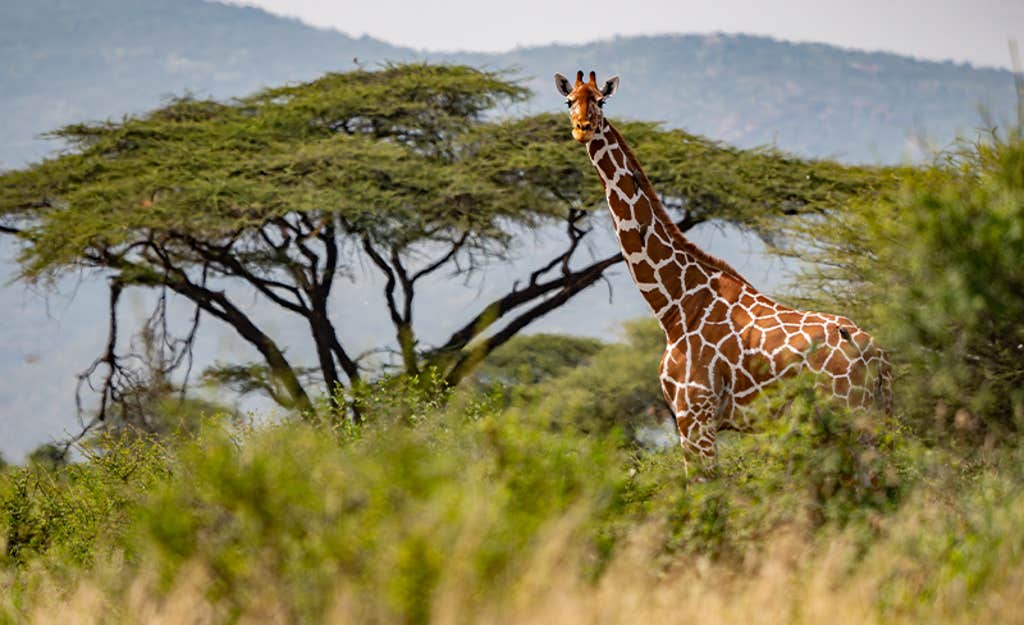
Sean Carroll, physicist
We can look for these phase-transitions, these moments when whole new modes of being complex open up. There are two that we’re right on the cusp of right now. The one everyone talks about out there in the popular media is AI or computers or uploading ourselves into the matrix. Neither one of us is an expert on that. Let’s not talk about it.
The one I think is maybe more interesting or at least more looming is synthetic biology: us going in there and editing who we are and what the genome is. That seems closer to being real and dramatic and having a huge and unknown impact. I know we can say, “Oh, we’re only going to do it with microbes, and we’re going to eat up all the CO2 in the atmosphere,” but you know that’s not true. You know someone’s going to be designing big and charismatic.
Sean Carroll, evolutionary biologist
There are big ethical questions about whether we’re going to modify the human germline. The scientific community has agreed not to do that. You can get everybody to sign the treaty, but that doesn’t mean that everybody’s going to adhere to it. But if we’re all looking at what might we do with CRISPR, that’s not where we need to have most of our attention right now. The gorilla and the elephant and all the other creatures would like us to pay attention to what we’re doing to the heritage of diversity of life on Earth. Everything is impoverished in numbers and in range. The biodiversity loss is a crisis. I’m not saying we won’t pay attention to CRISPR modification, but what’s going on now is a global experiment, whose trajectory is unpredictable. We’ve not really had a full reconciliation of what that means.
Sean Carroll, physicist
You mention storytelling. We’re both involved in communicating science to young people enthusiastic about science. We learn as we do it that certain stories resonate with people. When it comes to this kind of sales pitch for making the planet a better place, preserving it, what are the things that people light up about?
Sean Carroll, evolutionary biologist
One thing they need is hope. I think that they’re surrounded by a glut of gloom and doom and dysfunction. If you can show them a path to hope, and authentic hope, meaning that there’s a genuine reason to be hopeful, and that action can pay off, I think people can get enthused by that and get behind it. And that could be something like missions run by the Jet Propulsion Laboratory. Their motto, “Dare mighty things,” has got to be one of the best mottoes of any organization.
Sean Carroll, physicist
I’ve been on JPL committees. You don’t always notice that’s the motto.
Sean Carroll, evolutionary biologist
[Laughs] OK. But you see a picture of a rover on Mars and people are excited. Maybe they see a picture of a butterfly or maybe a TikTok of a hummingbird. That lights them up. The more we can offer glimpses into what scientists do, why we do it, and the fruits of our work, we can give people an understanding that is enriching to their lives. It’s not just intellectual. The more science can reach people at an emotional level is what’s going to be sticky. What do you hope from your audience?
Sean Carroll, physicist
My wife, Jennifer, who’s a professional science writer, keeps telling me, “You should mention human beings in your stories.” The first volume in my series, The Biggest Ideas in the Universe, is about classical physics. So I have to talk about Isaac Newton, the guy who gave us classical physics.
I tell the story that during a plague Newton was hiding away in Cambridge, where he wrote Principia Mathematica. Then you take it a little bit more deeply. It was the dawn of the Age of Reason. It was when the Royal Society was founded. The coffee shop was a new technological invention, where people would go and have coffee and talk about ideas.
Robert Hooke of Hooke’s law and Christopher Wren, who designed Saint Paul’s Cathedral, and Edmond Halley, who discovered the comet, were friends. They were card members of the Royal Society, and they would retire to coffee shops and think about, “How do we explain Kepler’s laws? How do we explain why planets go around the sun?” Guess what? They actually knew, or thought they knew, there was something called gravity, the force of gravity, and the fact that it decayed as the inverse square of the difference—the famous inverse-square law—they had a conviction that would explain why the planets move in ellipses, but none of them had the mathematical chops to do it.
Wow, but for one rock hitting the Earth 66 million years ago in a different place, humanity doesn’t exist.
They all knew that the guy who did was Isaac Newton. But they were afraid of him because he was very intimidating. Halley was the youngest. They sort of goaded Halley into going up and visiting Newton, and Newton receives him. Halley says, “So, by the way, if we had a gravitational force law that went as the inverse-square, what shape would the planets move in?” Newton’s like, “Ellipses.” Halley’s like, “How do you know that?” Newton’s like, “I calculated it.” Halley’s like, “You should tell us how to do that.”
How much physics do you learn from that story? None, or very little. How much insight do you get into how physics is done in the real world? How does physics go from being a once-and-for-all set of equations to this is a human endeavor? These were people with their anxieties and their coffee shops. Hooke and Newton became lifelong enemies. Newton had a lot of lifelong enemies. That’s another thing that you learn. Newton was a bitter, terrible person, but that’s what scientists are sometimes like.
Anyway, a long-winded answer to say that I give readers different things. I try to put some equations in there. I put some history and stories in there. I try to put some philosophy in there. And do it all at the same time.
Sean Carroll, evolutionary biologist
You told a story right there—that is the tool of engagement.
Sean Carroll, physicist
It’s the single most effective one, if you had to pick one.
Sean Carroll, evolutionary biologist
Narrative connects cause and effect. It is a natural way of carrying events over time.
Sean Carroll, physicist
And drama, right? I lived in Los Angeles for a long time and made friends with screenwriters. I went to a friend of mine who is a screenwriter and said, “I read this book by David Mamet, and he said that in every scene, every character should want something.” I thought that was genius, and he was like, “This is Screenwriting 101.” A story is not a series of things that happened. It’s a series of things that are driven to happen by goals and desires.
Which brings up another big science question I would like to someday understand: Why are there goals and desires? Why are we so interested in certain things happening in the future? The laws of physics don’t seem to point us in this direction, but biology does, and I’m curious about that.
Sean Carroll, evolutionary biologist
That’s a great question. Do you think that is from our awareness of our own mortality?
Sean Carroll, physicist
I think that a lot of it stems from the fact that we can imagine the future. The fact that we can conceptualize different possible futures is a little bit of a difference between us and other species. Other species don’t have the anxieties and embarrassment that we do. We can worry about the future in ways that they can’t. The flip side of that is we can have goals. We can be JPL. We can land rovers on Mars. But where did that come from? What was the first organism to have a goal, in which that vocabulary is the right way of thinking about it?
Sean Carroll, evolutionary biologist
One of my favorite biologists, François Jacob, said, “The dream of every bacterium is to become two.” That’s a fundamental truth about life: Everything that life goes through is just a means of making more of itself, right?
Sean Carroll, physicist
So that’s just hilariously anthropomorphic because the bacterium does not have a goal. The bacterium does something, but it doesn’t conceptualize different future possibilities.
Sean Carroll, evolutionary biologist
No, it does not. But I still like the aphorism.
Sean Carroll, physicist
It’s a good quote. I would even go back further in saying, “The purpose of life is an electron finding a place to rest.” Albert Szent-Györgyi said that. It’s just we’re out of equilibrium. We’re eating our food in fuel. We’re making more entropy in the universe. That’s what we’re all here for. So, how much do you regret that you did not become a physicist?
Sean Carroll, evolutionary biologist
Wow! Do I get to ask this in return? I think that one alternative path is paleontology. If somebody had taken me to a quarry at age 14, or even in college, I would’ve been a paleontologist because that most suits my appetites—exploration and the integration with Earth’s history and processes.
Sean Carroll, physicist
Which is weird because kids love dinosaurs. That’s usually what they fall in love with.
Sean Carroll, evolutionary biologist
Yeah, I fell in love with snakes so I kept snakes and stuff like that. That’s not an uncommon tale. It’s weird, relative to the whole general public. Snake keepers are a weird bunch.
Sean Carroll, physicist
Do you still have any?
Sean Carroll, evolutionary biologist
Not now. But I still get excited even when I stroll across one on the golf course. I’m 12 years old again. That’s my measure of whether I’m still me. I still got the juice. You could take away everything else, and just that surprise encounter, wherever that might be, it still sends a jolt through me. When you hear stories like that, doesn’t that make you want to become a biologist?
Sean Carroll, physicist
No, not even the slightest bit. I’ll leave the snakes to you. I did go on dinosaur digs and it is amazing. But from 10 years old to this day, my equivalent of snakes is the fundamental nature of reality. That’s what I want to get at. Our theories are pretty good in physics. Our theory of gravity from Einstein, general relativity, our theory of particle physics, the standard model, the Big Bang.
The new frontier is understanding how the fundamental laws of nature emerge into the macroscopic world. That’s why I’m interested in the origin of complexity, the nature of goals and purposes, the evolution of entropy, and the arrow of time. These, to me, are still questions about the fundamental nature of reality, but at a practical level. They’re at the level where there’s a whole bunch of low-hanging fruit lying there that we don’t know. The origin of life is a crucially important physics problem, as well as a crucially important geology and biology and chemistry problem, and I’m very excited about it.
Sean Carroll, evolutionary biologist
Since we’re talking about complexity, we’re having a better conversation about it than we could have when you and I were in graduate school. And we’ll have a better conversation about it 20 years from now.
Sean Carroll, physicist
I’ll put it on my calendar. ![]()
Lead image by Tasnuva Elahi; with video stills of Sean Carroll, physicist, left and Sean Carroll, evolutionary biologist, right, courtesy of John Steele and with an image by Vlamin / Shutterstock.



























